- Browse
- C Programming
C Programming Courses
C programming courses can help you learn syntax, data structures, algorithms, and memory management. You can build skills in debugging, optimizing code, and implementing efficient algorithms. Many courses introduce tools like GCC for compiling code, GDB for debugging, and libraries such as the Standard Template Library (STL) to enhance functionality. You'll also explore concepts like pointers, file handling, and dynamic memory allocation, which are crucial for developing robust applications.
Popular C Programming Courses and Certifications
 Status: Free TrialFree TrialD
Status: Free TrialFree TrialDDuke University
Skills you'll gain: Debugging, File I/O, Programming Principles, Maintainability, Software Testing, Program Development, C (Programming Language), Algorithms, Simulations, System Programming, Computer Programming, Data Structures, Software Development, Software Engineering, Command-Line Interface, Development Environment, User Interface (UI), Solution Design, Problem Solving, Software Design
4.6·Rating, 4.6 out of 5 stars7.4K reviewsBeginner · Specialization · 3 - 6 Months
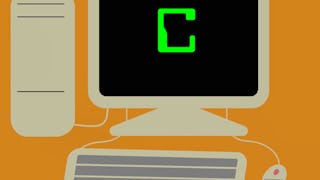 Status: Free TrialFree TrialU
Status: Free TrialFree TrialUUniversity of California, Santa Cruz
Skills you'll gain: Programming Principles, Software Documentation
4.5·Rating, 4.5 out of 5 stars6.8K reviewsBeginner · Course · 1 - 3 Months
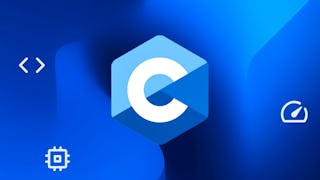 Status: Free TrialFree TrialU
Status: Free TrialFree TrialUUniversity of Michigan
Skills you'll gain: C (Programming Language), C++ (Programming Language), Object Oriented Programming (OOP), Data Structures, Programming Principles, Algorithms, Computer Programming, Software Design, Application Security, Other Programming Languages, Python Programming, Java Programming, System Programming, Computer Architecture, Performance Tuning, Unix, Computer Science, Debugging
4.5·Rating, 4.5 out of 5 stars235 reviewsIntermediate · Specialization · 3 - 6 Months
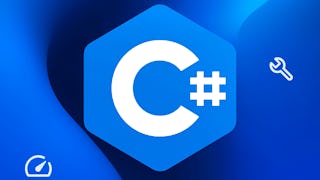 Status: Free TrialFree TrialU
Status: Free TrialFree TrialUUniversity of California, Santa Cruz
Skills you'll gain: C++ (Programming Language), Object Oriented Programming (OOP), Programming Principles, Software Design Patterns, Computer Programming, Algorithms, C (Programming Language), Graph Theory, Debugging, Artificial Intelligence, Data Structures, Game Design, Software Documentation
4.5·Rating, 4.5 out of 5 stars9.6K reviewsBeginner · Specialization · 3 - 6 Months
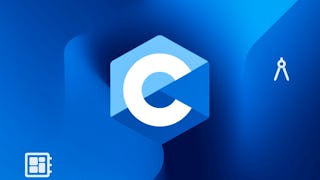 Status: Free TrialFree TrialD
Status: Free TrialFree TrialDDartmouth College
Skills you'll gain: Command-Line Interface, C (Programming Language), Linux Commands, Linux, Embedded Systems, File I/O, Embedded Software, Software Visualization, Programming Principles, Computer Engineering, Linux Servers, File Systems, System Programming, Algorithms, Computer Architecture, Computer Programming, Software Documentation, Computer Science, Software Engineering, Debugging
4.6·Rating, 4.6 out of 5 stars434 reviewsBeginner · Specialization · 3 - 6 Months
 Status: Free TrialFree TrialU
Status: Free TrialFree TrialUUniversity of Michigan
Skills you'll gain: C (Programming Language), Programming Principles, C++ (Programming Language), Algorithms, Data Structures, Other Programming Languages, System Programming
4.5·Rating, 4.5 out of 5 stars93 reviewsIntermediate · Course · 1 - 4 Weeks
What brings you to Coursera today?
 Status: Free TrialFree TrialM
Status: Free TrialFree TrialMMicrosoft
Skills you'll gain: C# (Programming Language), Object Oriented Programming (OOP), Debugging, .NET Framework, Microsoft Visual Studio, Microsoft Copilot, Computer Programming, Integrated Development Environments, Development Environment, Event-Driven Programming
4.6·Rating, 4.6 out of 5 stars104 reviewsBeginner · Course · 1 - 3 Months
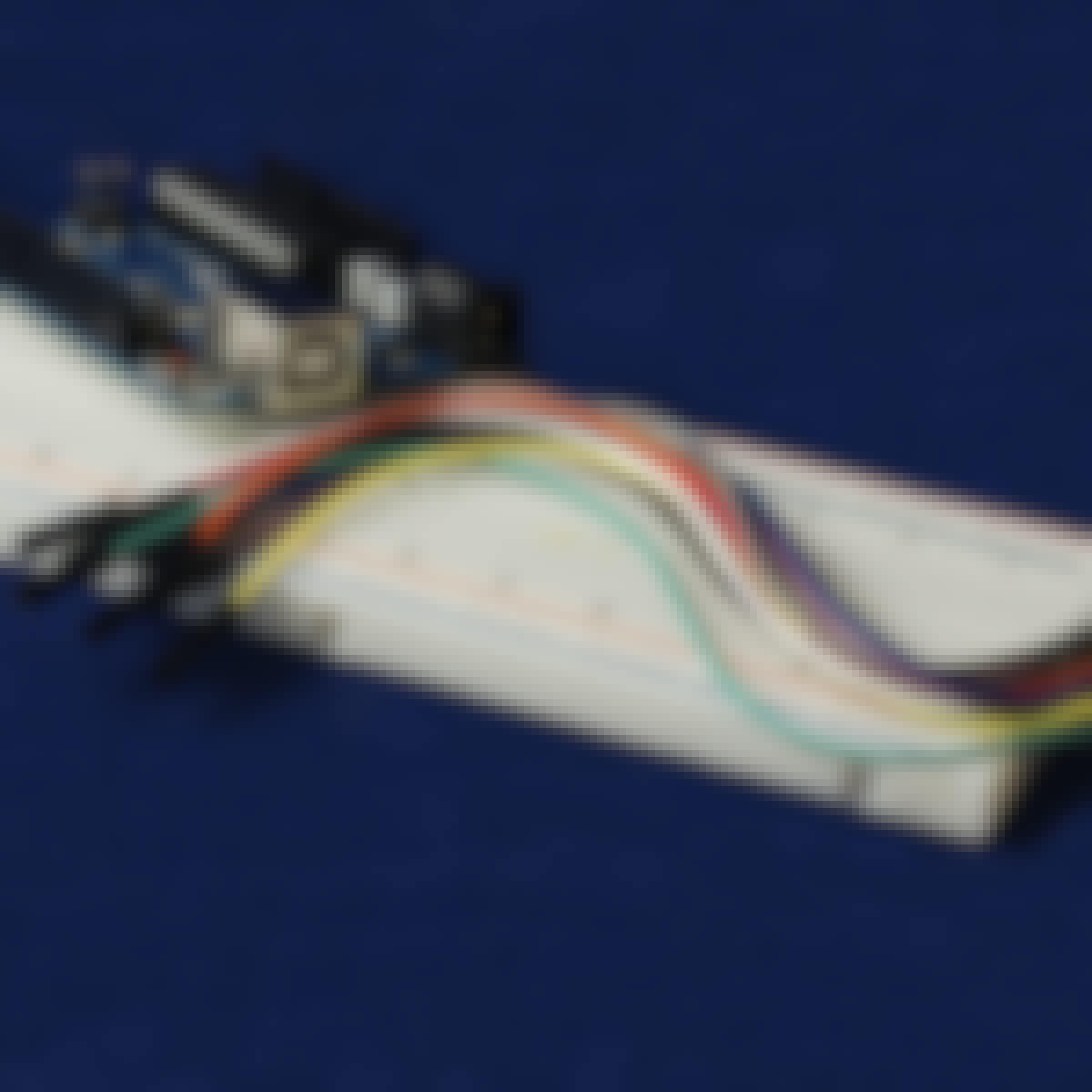 Status: Free TrialFree TrialU
Status: Free TrialFree TrialUUniversity of California, Irvine
Skills you'll gain: Embedded Software, Embedded Systems, Debugging, C (Programming Language), Electronic Components, Computer Hardware, Integrated Development Environments, Computer Programming, Electronics Engineering, Network Protocols, Development Environment, Digital Communications, Open Source Technology
4.7·Rating, 4.7 out of 5 stars7.2K reviewsMixed · Course · 1 - 4 Weeks
 Status: NewNewStatus: Free TrialFree Trial
Status: NewNewStatus: Free TrialFree TrialSkills you'll gain: Debugging, C++ (Programming Language), Software Documentation, API Design, Program Development, Pseudocode, Software Architecture, Software Design, Maintainability, Computational Thinking, System Programming, Data Structures, Programming Principles, Computer Programming, Generative AI Agents, Integrated Development Environments, Technical Documentation, Generative AI, Application Development, Data Validation
4.7·Rating, 4.7 out of 5 stars6 reviewsBeginner · Professional Certificate · 3 - 6 Months
 Status: PreviewPreviewS
Status: PreviewPreviewSSimplilearn
Skills you'll gain: Data Structures, C (Programming Language), Programming Principles, Data Management, Algorithms, Computer Programming, File I/O
4.2·Rating, 4.2 out of 5 stars14 reviewsBeginner · Course · 1 - 4 Weeks
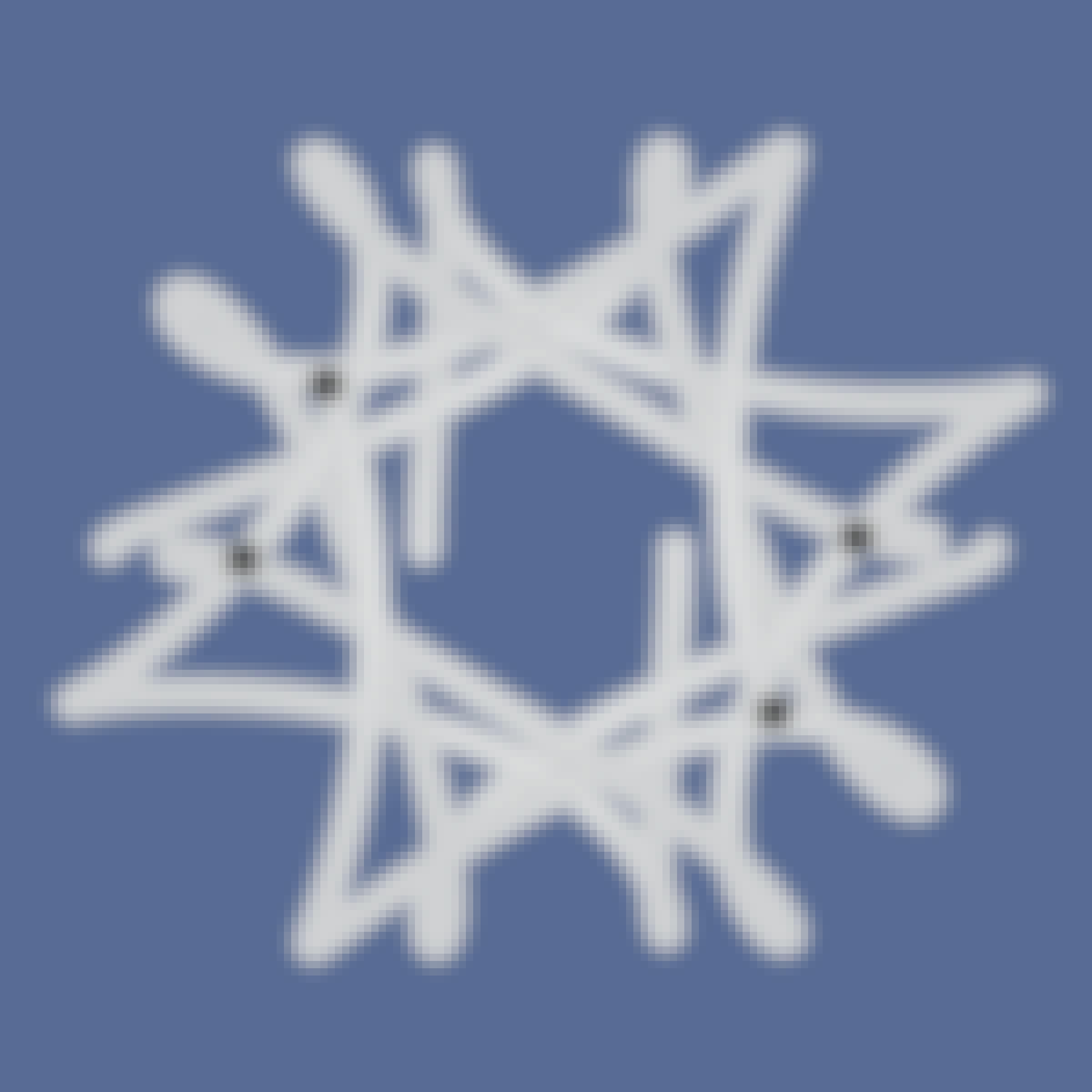 Status: FreeFreeP
Status: FreeFreePPrinceton University
Skills you'll gain: Programming Principles, Computer Programming, Object Oriented Programming (OOP), Performance Tuning, Data Structures, Java Programming, Java, Program Development, File I/O, Computational Thinking, Computer Science, Algorithms, Animations, Debugging
4.7·Rating, 4.7 out of 5 stars1.3K reviewsBeginner · Course · 1 - 3 Months
 Status: NewNewStatus: Free TrialFree TrialM
Status: NewNewStatus: Free TrialFree TrialMMicrosoft
Skills you'll gain: Debugging, Program Development, Software Documentation, Pseudocode, C++ (Programming Language), Computational Thinking, Maintainability, Programming Principles, Computer Programming, Integrated Development Environments, Development Environment, Algorithms, Data Validation
4.7·Rating, 4.7 out of 5 stars6 reviewsBeginner · Course · 1 - 3 Months
Searches related to c programming
In summary, here are 10 of our most popular c programming courses
- Introductory C Programming: Duke University
- C for Everyone, Part 1: Programming Fundamentals: University of California, Santa Cruz
- C Programming for Everybody: University of Michigan
- Coding for Everyone: C and C++: University of California, Santa Cruz
- C Programming with Linux: Dartmouth College
- Programming in C: University of Michigan
- Introduction to Programming With C#: Microsoft
- The Arduino Platform and C Programming: University of California, Irvine
- Microsoft Introduction to C++ Programming: Microsoft
- Programming with C: Simplilearn
Frequently Asked Questions about C Programming
C programming is a foundational programming language that has influenced many modern languages. It is crucial for developing system software, applications, and embedded systems due to its efficiency and control over system resources. Understanding C programming can provide a strong base for learning other languages and concepts in computer science.
With skills in C programming, you can pursue various roles such as software developer, systems programmer, embedded systems engineer, and game developer. These positions often require a solid understanding of how software interacts with hardware, making C programming a valuable asset in the tech industry.
To learn C programming effectively, you should focus on understanding basic syntax, data types, control structures, functions, and memory management. Familiarity with debugging tools and development environments will also enhance your learning experience and help you write efficient code.
Some of the best online courses for C programming include the Introductory C Programming Specialization and C Programming for Everybody Specialization. These programs offer structured learning paths and practical exercises to help you build your skills.
Yes. You can start learning c programming on Coursera for free in two ways:
- Preview the first module of many c programming courses at no cost. This includes video lessons, readings, graded assignments, and Coursera Coach (where available).
- Start a 7-day free trial for Specializations or Coursera Plus. This gives you full access to all course content across eligible programs within the timeframe of your trial.
If you want to keep learning, earn a certificate in c programming, or unlock full course access after the preview or trial, you can upgrade or apply for financial aid.
To learn C programming, start by enrolling in an introductory course. Practice coding regularly, work on small projects, and engage with online communities. Utilize resources like coding challenges and forums to enhance your understanding and problem-solving skills.
Typical topics covered in C programming courses include variables, data types, operators, control flow (if statements, loops), functions, arrays, pointers, and file handling. Advanced courses may also explore memory management and data structures.
For training and upskilling employees, courses like the C Programming with Linux Specialization and C and Go: Classical and Modern Programming Specialization are excellent choices. These programs provide practical skills that can be directly applied in the workplace.










